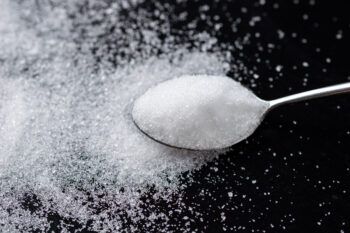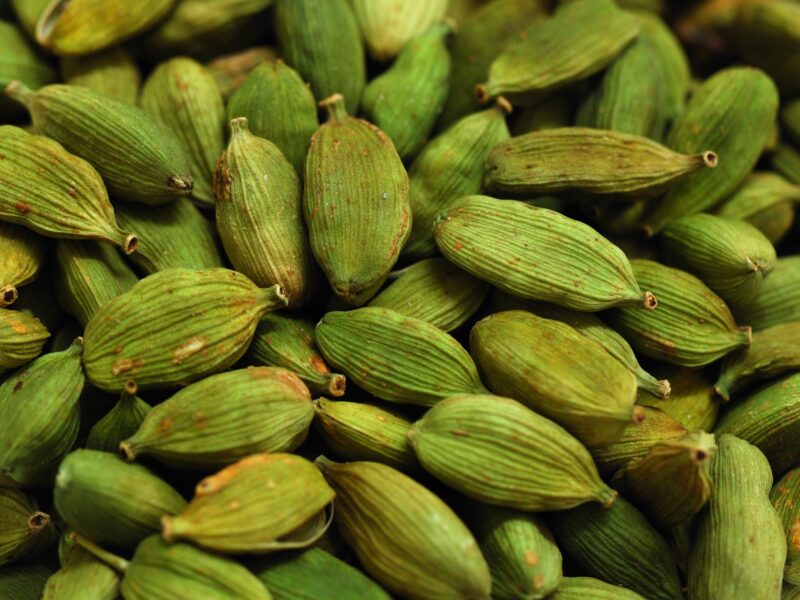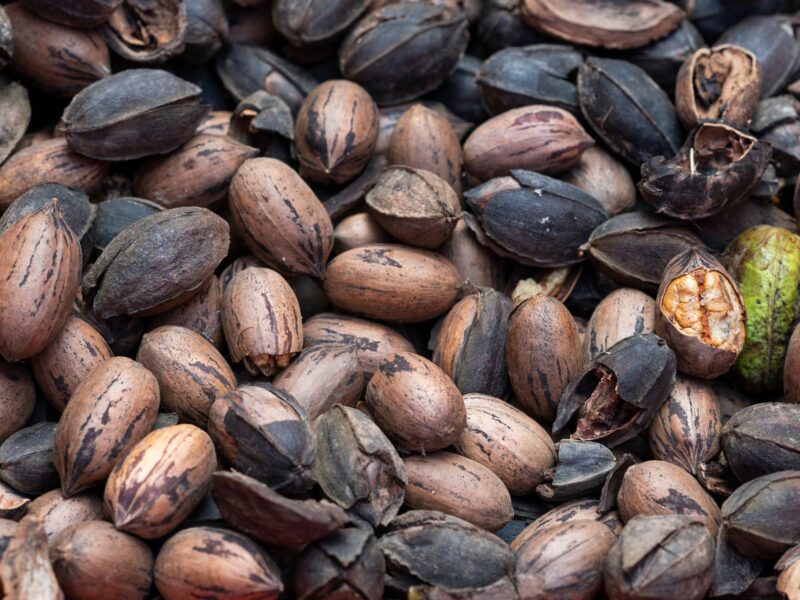Too Much Sugar Isn’t So Sweet For Your Heart

When trying to do right by your heart, your first thought may be to cut back on salt or unhealthy fats. But have you thought about reducing your sugar intake?
Dr. Clayton Kruger, a board-certified family medicine physician at Texas A&M Health Family Care in Bryan and a clinical assistant professor at the Texas A&M University School of Medicine, says excessive amounts of refined sugar can have negative impacts on heart health.
“A high sugar diet increases the amount of inflammation in your body,” he said. “High inflammation can damage your blood vessels—the blood vessels in your eyes, your kidneys and in your heart. That is the main concern with a high sugar diet.”
Chronic inflammation increases the risk for developing heart disease, heart attacks and strokes. Over time, inflammation in heart vessels can lead to a thrombus, or a blood clot, that prevents oxygen and nutrients from reaching parts of the heart, and that can cause a heart attack. A blood clot in the brain can cause stroke.
Systemic inflammation is also linked with heart failure, a condition that develops when your heart doesn’t pump enough blood for your body’s needs. “Unfortunately, heart failure is really increasing in the United States, and it’s one of the leading causes of death and disability in this country,” Kruger said.
Too much sugar can also lead to weight gain, obesity and type 2 diabetes, a chronic disease characterized by high blood glucose levels. Type 2 diabetes can cause a host of complications such as heart attack, stroke, nerve damage, kidney failure, vision and hearing loss, and amputation.

Natural Versus Refined Sugar
Not all sugar is created equal. Natural sugar from foods like fruits, vegetables, dairy and grains is part of a balanced diet. These natural sugars are complex molecules that take the body longer to process and don’t raise your blood sugar as high as refined sugars. The American Heart Association recommends eating two servings of fruit, two and a half servings of vegetables, three servings of dairy and six servings of grains per day, based on a 2,000 calorie daily diet.
The most harmful type of sugar is the refined stuff, which starts from natural sources such as sugar cane, beets or corn, but is processed down to a simple molecule through manufacturing.
“The problem with these simple sugars is that the body responds very quickly to them and they’re very addicting because they can raise dopamine levels in your brain,” Kruger said. “And so, it gives you kind of a natural high, and that’s why sugar makes you feel good whenever you eat something like a candy bar or drink a soda.”
How Much Sugar Is Too Much?
The American Heart Association recommends that men not eat more than nine teaspoons of sugar per day, and that women eat no more than six teaspoons per day. Unfortunately, the American diet can make it very easy to consume too much refined sugar — just one 12-ounce soda contains more than the recommended daily amount at about eight teaspoons.
“It is very shocking how low the amount of sugar you’re recommended to consume in a day,” Kruger said.
Refined sugar hides in many common American foods, including breakfast cereals, condiments like barbecue sauce, ketchup and mayonnaise, salad dressing, coffee creamers, granola bars and numerous snacks, making it easy to rack up too much.
How To Reduce Your Sugar Intake
Cutting out just a few kinds of foods can drastically reduce the amount of sugar you consume per day. Kruger recommends starting with what you drink.
“A lot of people drink sodas, and that’s where we have seen most people get their daily sugar intake. Try to find ways to either change from regular sodas to diet sodas, or switching to healthier options like water, coffee or tea,” he said.
Kruger cautions, however, that coffee or tea can come with lots of unhealthy additives, so he suggests either drinking them black or using natural sweeteners like honey or agave in limited quantities. Aspartame — an artificial sweetener used in products like Diet Coke — has recently been added to the World Health Organization’s list of potential carcinogens, so it’s important to limit your intake of aspartame or avoid it altogether.
Some juices are loaded with sugar, too. In fact, eight ounces of Welch’s grape juice has 35 grams, or about 8 teaspoons of sugar, which is the same amount as a regular soda.
“A lot of people think that juicing and drinking a lot of fruits and vegetables is very healthy, and although you will get some of the nutrients from that, unfortunately, you lose a lot of the health benefits of actually eating the fruit or vegetable whole because you’re missing out on a lot of the fibers,” Kruger said.
If you’re going to have some juice, Kruger recommends reaching for 100 percent fruit juice and avoiding those labeled “from concentrate” since they have minimal fruit content and lots of added sugar.
Switching your breakfast cereal is another way to reduce sugar consumption. Many cereals — even some labeled as “natural” or “healthy”—contain large amounts of sugar. A serving of Kellogg’s Frosted Mini Wheats, for example, contains 12 grams, or about three teaspoons, of sugar, which is more than a glazed donut.
Other Ways To Care For Your Heart
“Reducing your sugar intake is one of the best things you can do for your health,” Kruger said. Limiting the amount of sugar in your diet can lower inflammatory markers and reduce the damage that causes. Kruger said he’s even seen treatment resistant diabetes patients successfully manage their condition to the extent that they no longer require medication because of their commitment to reducing the amount of sugar they consume.
Cutting back on sugar is just one part of keeping your heart, and the rest of your body and mind, healthy. Kruger says the staples of heart health are getting regular physical activity, minimizing alcohol consumption, reducing sodium intake and quitting smoking.
“The body is really incredible. It can heal itself in amazing ways. We just have to allow it to do its thing. And we have to remove a lot of the agents that are causing more of the damage,” Kruger said.
This article by Lindsey Hendrix originally appeared on Vital Record.





